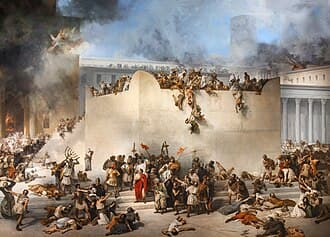Tweet Sparks Debate on Historical Claims and Ideological Consistency in Israeli-Palestinian Discourse

A recent social media post by user Howard ✡. 🟦🇮🇱🎗🧡 has ignited a contentious discussion regarding the historical presence of Jews in Jerusalem and the ideological consistency of "Marxist-Leninist Stalinist" factions concerning the Israeli-Palestinian conflict. The tweet, posted on August 26, 2025, directly challenges individuals identifying as "anti-colonialist" and "anti-imperialist," asserting a perceived contradiction in their stance towards Jewish claims to an ancestral homeland.
The author, Howard, specifically stated, > "If you truly were 'anti-colonialist' and 'anti-imperialist' as your bios claim, you'd not seek to have Jews wiped out of their ancestral homeland for 'palestine', when Jews built the Temple of Solomon in Jerusalem eons before Islam existed." This statement draws a direct link between historical Jewish habitation in Jerusalem and contemporary political positions. The First Temple, often referred to as Solomon's Temple, is widely accepted by scholars to have existed in Jerusalem between the 10th and 6th centuries BCE. While direct archaeological evidence on the Temple Mount is limited due to religious and political sensitivities, extensive historical and archaeological findings corroborate a continuous Jewish presence in the city dating back millennia.
The terms "anti-colonialist" and "anti-imperialist" are central to the tweet's critique. In Marxist and left-wing discourse, these terms are frequently applied to analyze geopolitical conflicts, including the Israeli-Palestinian situation, where Zionism is often framed by some as a colonial or imperialist project. This perspective is rooted in historical materialist analyses that view the establishment of Israel through the lens of European expansion and settler-colonialism. However, the tweet implies that such anti-colonial stances are selectively applied, particularly when they appear to negate Jewish historical ties to the land.
The tweet highlights the deeply entrenched and often irreconcilable narratives surrounding the Israeli-Palestinian conflict, particularly concerning historical claims and ideological frameworks. The author's use of strong language, including the phrase "wiped out," underscores the high emotional and political stakes involved in this ongoing debate. Such exchanges on social media platforms reflect broader societal divisions and the persistent challenge of reconciling historical and religious claims with contemporary political realities and human rights considerations.